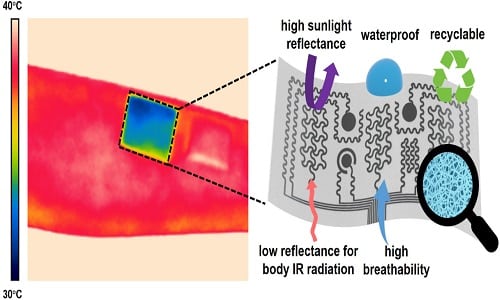The device works on the same principle as room cooling, thus bringing down body temperature and eliminating any need for electricity-based air-cooling

Rising temperatures are creating an increased uncomfortableness among humans, especially to those who have to work for long hours under the sun. This, in turn, increases the chances of them getting prone to fatal medical conditions such as dehydration and elevated body temperature.
Now, a team of engineers from the University of Missouri have developed a flexible, body-monitoring electronics material that can be worn around certain body parts. Dubbed as “wearable air conditioner”, the on-skin device can effectively monitor blood pressure, skin hydration levels and electrical activity of the heart.
“We believe this is one of the first demonstrations of this capability in the emerging field of on-skin electronics,” said corresponding author Zheng Yan, an assistant professor in the College of Engineering.
Similar to passive cooling
This breathable and waterproof device provides cooling works on the principle of passive cooling. Passive cooling is a method typically employed in buildings in which, soil and wind act as natural heat sinks by absorbing heat in the daytime and releasing it at night. Passive cooling requires no electrical equipment such as a fan or pump, which results in significant cost-saving.
“Our (on-skin) device can reflect sunlight away from the human body to minimize heat absorption, while simultaneously allowing the body to dissipate body heat, thereby cooling the human body during the daytime hours,” said Yan.
Beneficiaries
Soldiers, who have to stay vigilant for prolonged hours under extreme heat, could hugely benefit from this innovation.
Similarly, athletes could effectively bring down their body temperature after a gruelling physical activity and reduce the risk of injury-related problems.
Future plans
Currently, the on-skin electronic device operates after being wired to a power source. Researchers intend to make it wireless in the future. They also hope to successfully integrate it into smart clothing.
“Eventually, we would like to take this technology and apply it to the development of smart textiles,” Yan said. “That would allow for the device’s cooling capabilities to be delivered across the whole body. Right now, the cooling is only concentrated in a specific area where the patch is located. We believe this could potentially help reduce electricity usage and also help with global warming.”







